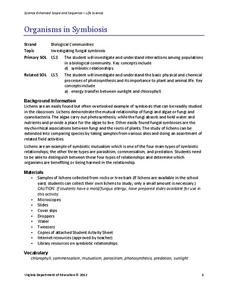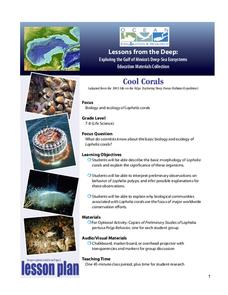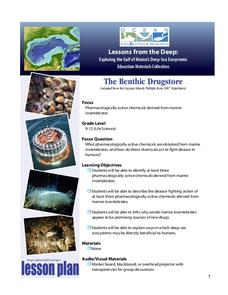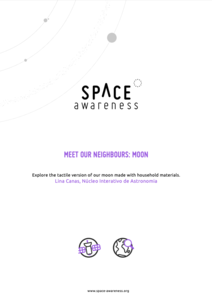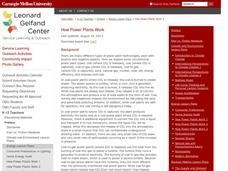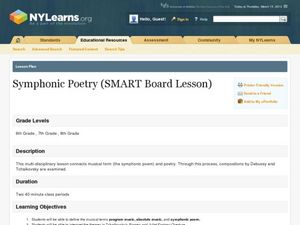Curated OER
I, Robot, Can Do That!
Assign groups of middle school oceanographers to research one of the following underwater robots; ABE, Herculues, ROPOS, RCV-150, Tiburon, or general purpose ROVs. An included handout guides them through information to be gathered. Each...
Curated OER
Landscape Garden Makeover
A project-based learning plan focuses on landscapes in the community. After identifying problems, such as dead trees or misplaced automatic sprinklers, learners design solutions, contact local organizations to fix the problems, and do...
Mathematics Vision Project
Module 6: Congruence, Construction, and Proof
Trace the links between a variety of math concepts in this far-reaching unit. Ideas that seem very different on the outset (like the distance formula and rigid transformations) come together in very natural and logical ways. This unit...
Virginia Department of Education
Organisms in Symbiosis
Searching for an activity that allows emerging biologists to explore symbiosis up close and personal? Pupils collect samples and view lichens through a microscope and conclude with a discussion about the relationship they have with other...
Science Matters
Slip Sliding Along
The San Andreas Fault is the largest earthquake-producing fault in California. In the seventh lesson in the 20 part series, pupils create maps of California, focusing on the San Andreas Fault system. The comparison of where California is...
Curated OER
Earthquakes: Kindergarten Lesson Plans and Activities
Beginning with a pre-lab, kindergarteners trace the letters in the word earthquake and discuss what happens in an earthquake. The lab portion allows young scientists realize that earthquakes trigger shaking of different intensities...
Curated OER
Hazards: Kindergarten Lesson Plans and Activities
The last unit in the series allows kindergarteners to see the dangers and hazards associated with each of the natural disasters learned so far in the series—earthquakes and volcanoes. They listen to sounds associated with the disasters.
Curated OER
Gender Roles: Exposing Stereotypes
A series of activities help middle- and high-schoolers identify and explore gender stereotypes and how they can lead to violence and abuse. Use think-pair-share to activate whole class brainstorming about what it means to "be a man" and...
National Park Service
Living & Non-Living Interactions
What better way to learn about ecosystems than by getting outside and observing them first hand? Accompanying a field trip to a local park or outdoor space, this series of collaborative activities engages children in learning about the...
Curated OER
Earthquakes: Fourth Grade Lesson Plans and Activities
Examine earthquake intensities and ways to measure an earthquake through the comparison of the Mercalli and Richter scales. After completing the pre-lab worksheet, fourth graders compare high and low intensity quakes by testing the...
It's About Time
Mass Extinction and Fossil Records
The focus of a fossil-based lesson uses graphs and charts that allow young paleontologists to make inferences about events of mass extinction. They must apply their previous knowledge about fossil records in this final lesson of the...
NOAA
Deep-Sea Ecosystems – Cool Corals
Young oceanographers research deep sea corals that thrive on chemosynthesis. The lesson focuses on the biology of the animal, preferred habitat, associations, and interactions.
NOAA
Importance of Deep-Sea Ecosystems – The Benthic Drugstore
You never know what you will find next in the deep sea ecosystem. So far, scientists have found items that work as anti-tumor agents, anti-inflammatory agents, agents that stop uncontrolled cell division, and much more. The lesson begins...
NOAA
Deep-Sea Ecosystems – Life is Weird!
A pool of brine in the deep sea can be up to four times as salty as the surrounding sea water. The deep sea ecosystem relies on chemosynthesis and the organisms that live there are often strange to us. The lesson focuses on researching...
NOAA
Deep-Sea Ecosystems – A Tale of Deep Corals
Many have debated which came first, the chicken or the egg, but this lesson debates which came first, the hydrocarbons or the carbonate reef. After a discussion on deep-sea corals, scholars receive a set of questions to research and...
NOAA
Importance of Deep-Sea Ecosystems – How Diverse is That?
When judging diversity of an ecosystem, both species evenness and species richness must contribute. After a discussion of diversity and a guided example using the Shannon-Weaver function, scholars use the same function on two other...
Science Matters
Fault Formations
The San Andreas Fault moves about two inches a year, approximately the same rate fingernails grow—crazy! The third lesson in the series allows for hands-on exploration of various fault formations. Through the use of a Popsicle stick,...
Science Matters
Spaghetti Fault Model
Does increasing the pressure between two moving plates provide a stabilizing force or create more destruction? The hands-on lesson encourages exploration of strike-split fault models. The sixth lesson in a 20-part series asks scholars to...
Space Awareness
Meet Our Neighbors: Moon
Since a field trip to the moon isn't possible, bring the moon to young astronomers! Participants use everyday materials to create models of the moon and represent the features on its surface. The materials serve as a tactile as well as a...
Carnegie Mellon University
How Power Plants Work 2
In this second of three lessons on power plants, future engineers find out how we generate electricity and how coal-powered plants operate. They work in small groups to make electromagnet generators to light LED bulbs. A set of...
Carnegie Mellon University
How Power Plants Work 3
Double, double toil and trouble, fire burn and cauldron bubble! Find out what drives a turbine to generate electricity and whether or not it has an impact on the environment. A discussion and lecture is divided by a hands-on activity in...
Curated OER
Symphonic Poetry (SMART Board Lesson)
Let music and poetry collide in this well-orchestrated language arts lesson plan. After studying program music and C. Debussy's Prelude to an Afternoon Faun, view the attached SMART board lesson plan to read through "Fog" by Carl...
Other popular searches
- Three Types of Rocks
- 3 Types of Rocks
- Different Types of Rocks
- +3 Types of Rocks
- Rocks Types
- Differant Types of Rocks
- Identifying Types of Rocks
- Describe Types of Rocks
- Differ Ant Types of Rocks
- 3 Types of Rocks Lab
- Rocks Types and Weathering
- Creating Three Types of Rocks





